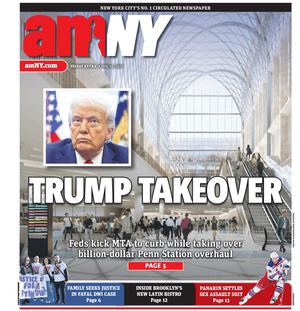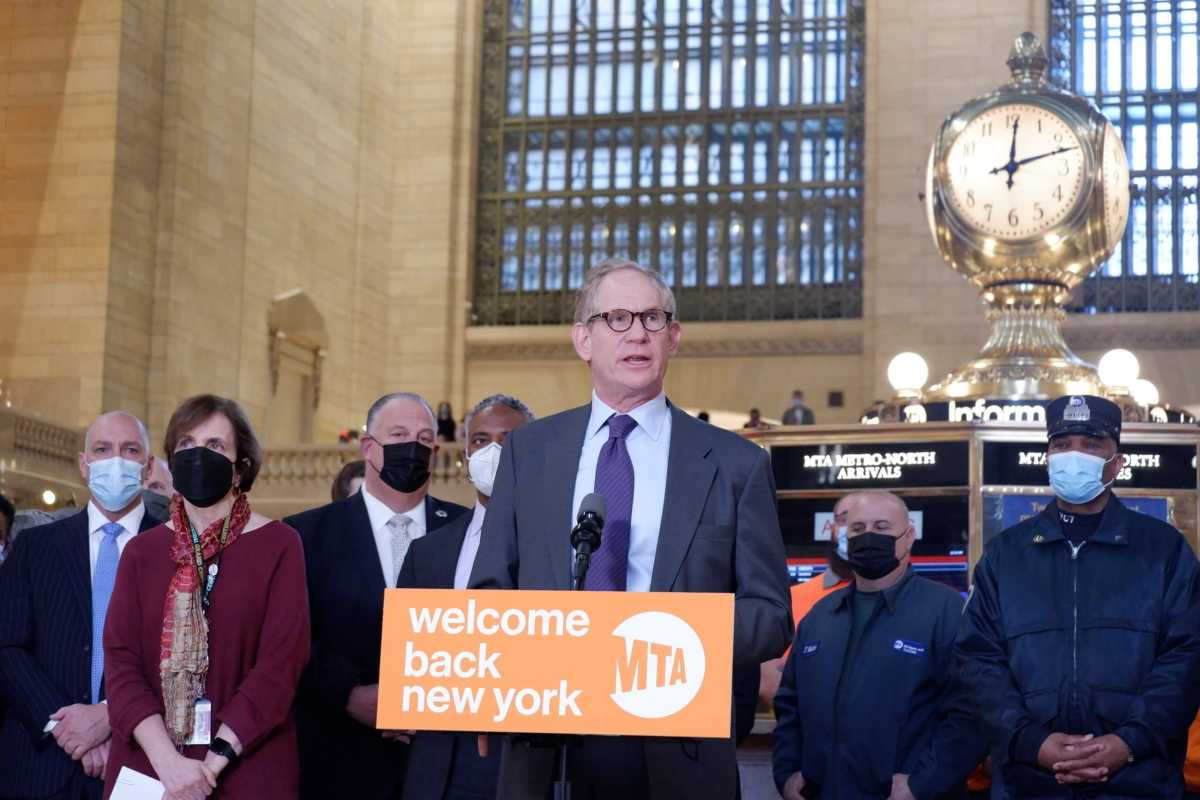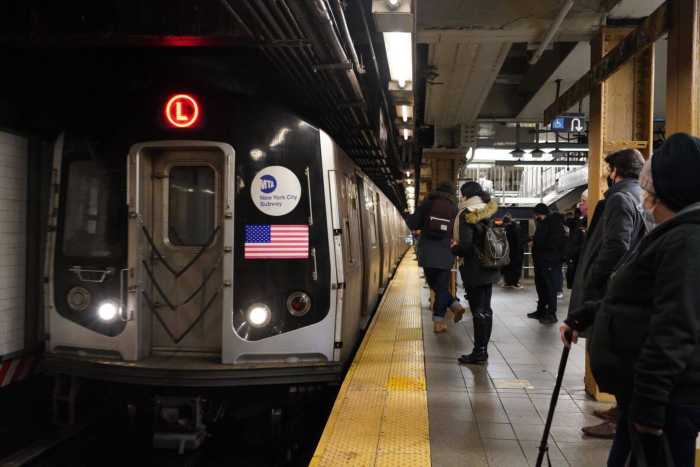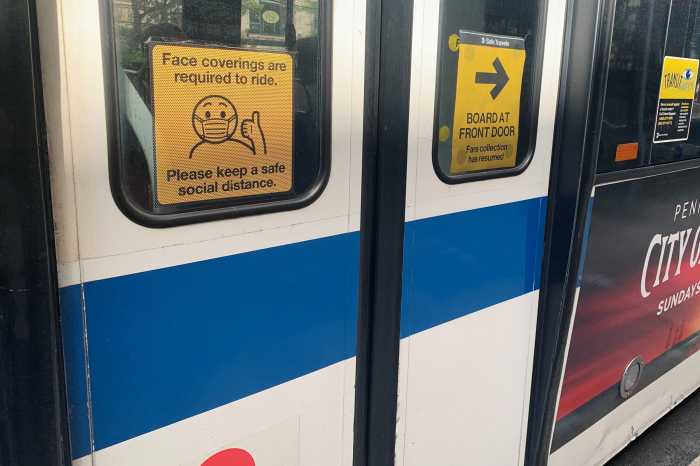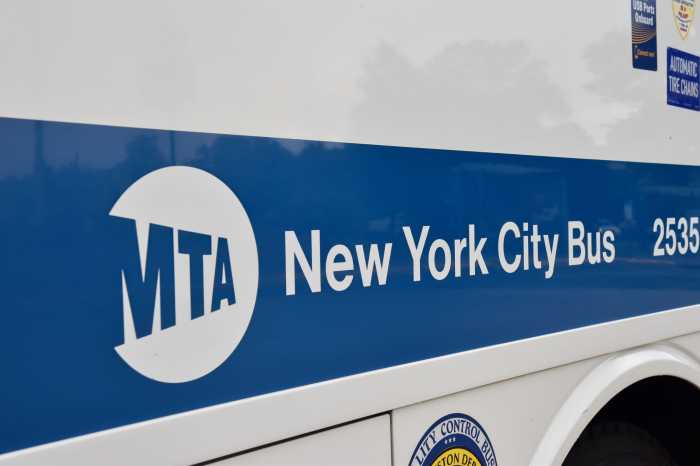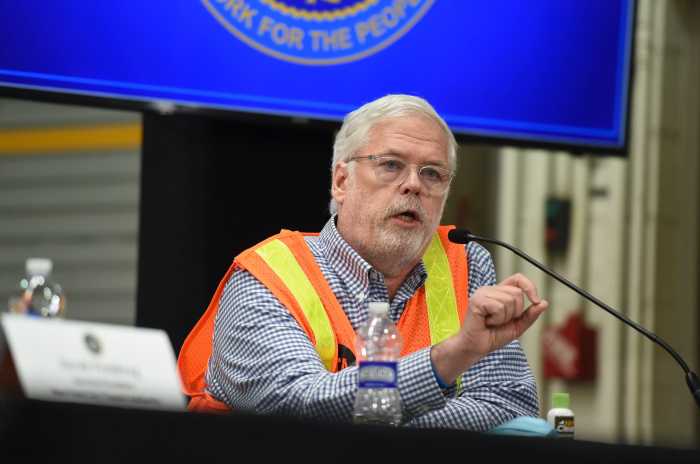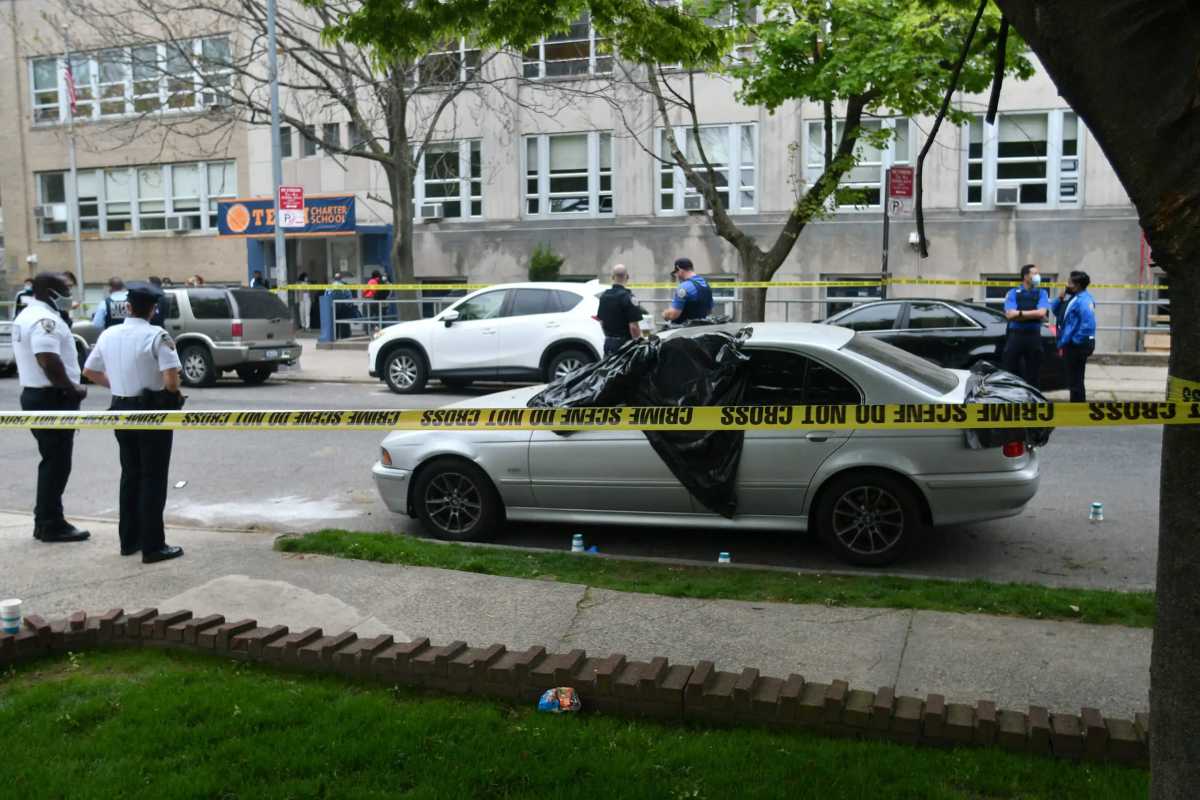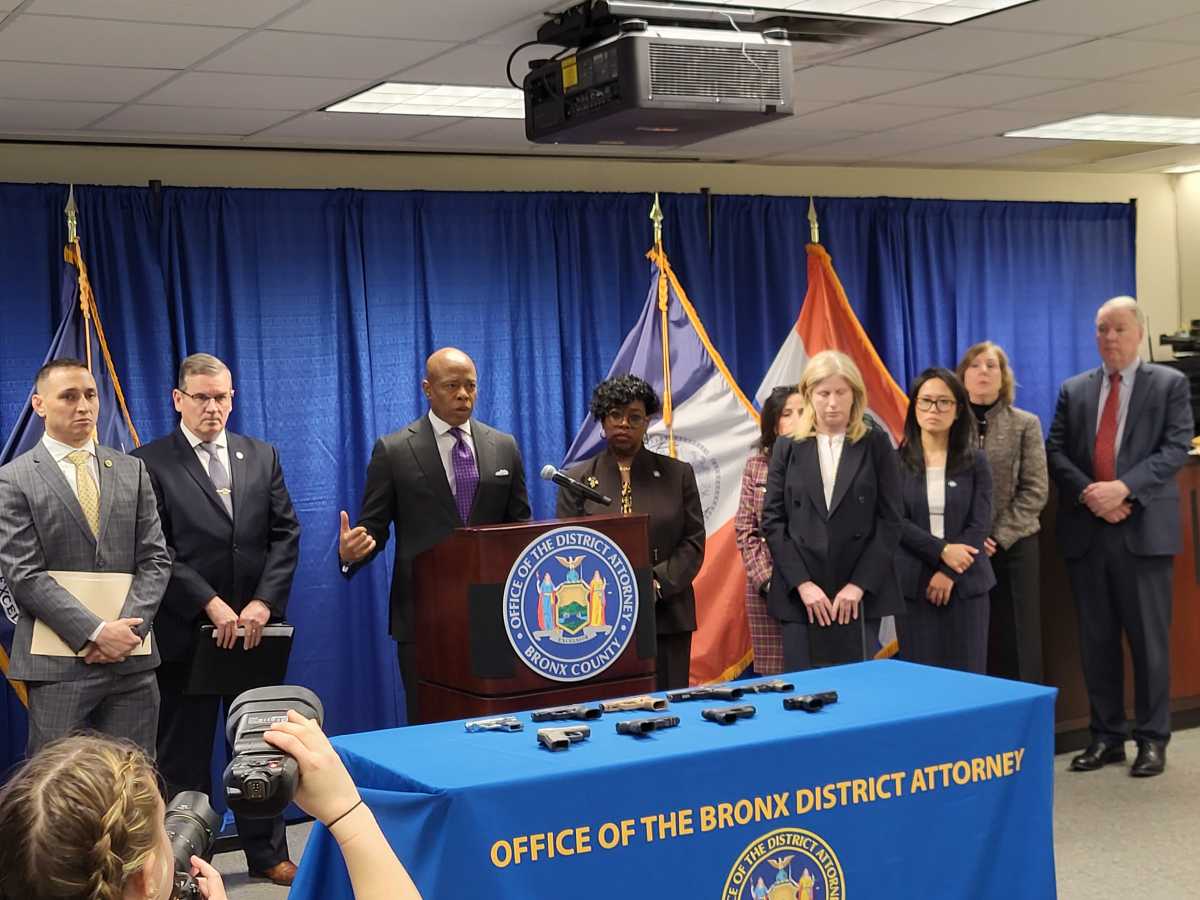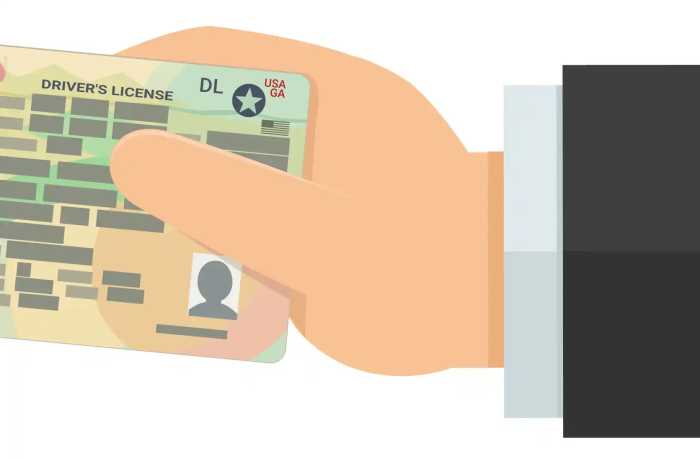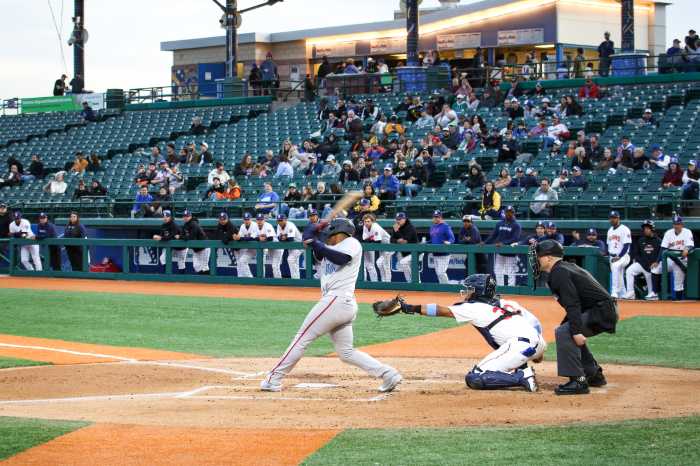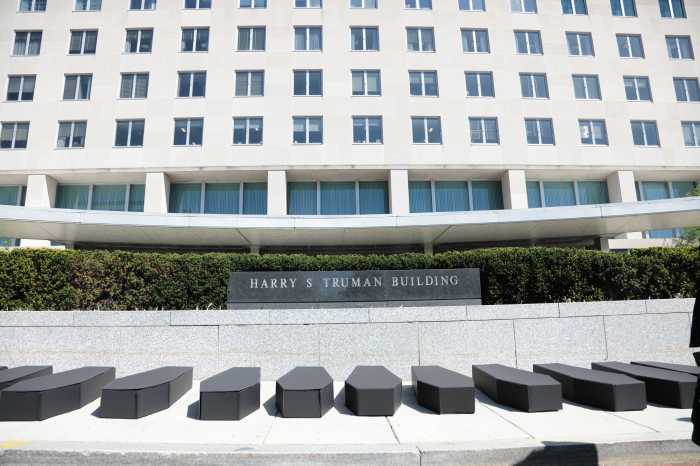Suspending the state’s gas taxes could cost the MTA hundreds of millions of dollars, and the agency does not know how it could make up that sudden loss of cash needed to keep running the Big Apple’s subways and buses.
“It’s $400 million the first year if we were to lose the gas tax to the MTA,” said Metropolitan Transportation Authority Chairperson and CEO Janno Lieber Wednesday.
During an unrelated press conference at Grand Central Terminal, Lieber was asked by a reporter whether transit leaders have an alternative source of revenue to tap into if state pols choose to adopt a so-called gas tax “holiday” amid rising prices at the pump.
“Not that I know of right now,” he said.
The MTA big noted that the loss of funds could have a particularly bad knock-on effect on the agency’s ability to issue bonds, which hinge on those streams of income.
“We have to get people to understand what that could hypothetically mean for the MTA,” he said. “The MTA’s financing — especially if a particular security is supporting bonds — needs to be carefully examined before anybody messes with it.”
The state Senate proposed to suspend certain state taxes on gas sales starting May 1 through the end of the year, as part of the state’s annual budget politicians are currently negotiating in Albany.
Lawmakers hope to give a break to drivers feeling the squeeze of rising costs of gas in recent weeks amid the war in Ukraine and inflation, and other states have considered similar moves.
Governor Kathy Hochul said the proposal was “one area we should be looking at, we are looking at it,” but noted that many of the same funds are needed for the state’s roads and bridges.
The MTA, the nation’s largest public transit system, also relies on cash from the so-called petroleum business tax, to the tune of about $620 million a year through 2025, according to the MTA’s latest financial planning documents from February.
Lieber emphasized that the discussions among state legislators are still in their “early days,” as the April 1 budget deadline approaches, but said the gas tax was not a done deal.
“I’m not by any means thinking like this is a done deal,” he said. “I’ve only just found out — literally this morning, the numbers I just gave you I asked people to develop this morning — so we’re trying to get our heads around this idea.”
It wasn’t clear yet whether the increase in gas prices has pushed more commuters out of private vehicles and into mass transit, Lieber said.
However, ridership has been growing, following an Omicron slump in the new year, to above 3 million straphangers every weekday since last Tuesday.
“I think it’s too early to declare cause and effect, but definitely ridership continues to go up as gas prices have gone up,” he said. “We’ll see how that trend continues.”
The state should put more money into funding frequent and reliable transit, rather than continue encouraging New Yorkers to drive, said one advocate.
“The best way for the governor to help New Yorkers struggling with gas prices is to run more frequent transit service to give drivers better alternatives to their cars,” said Danny Pearlstein of Riders Alliance.
